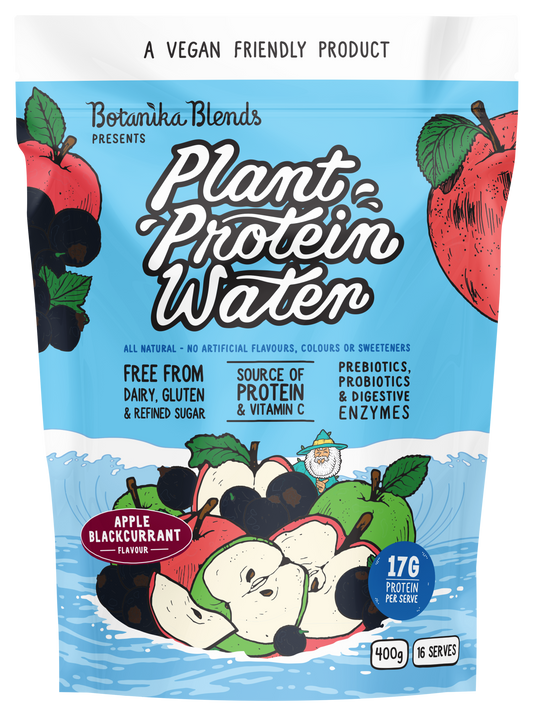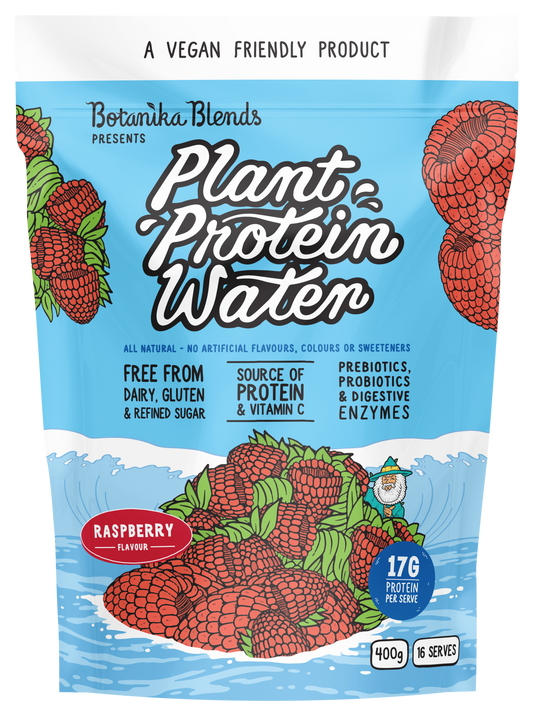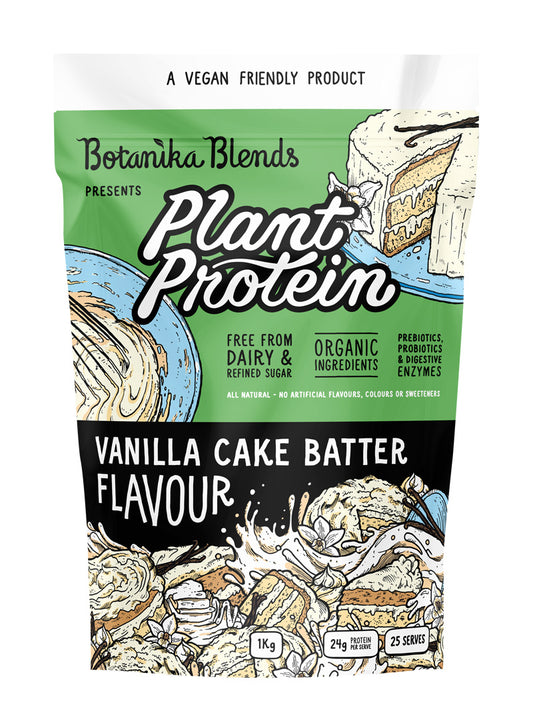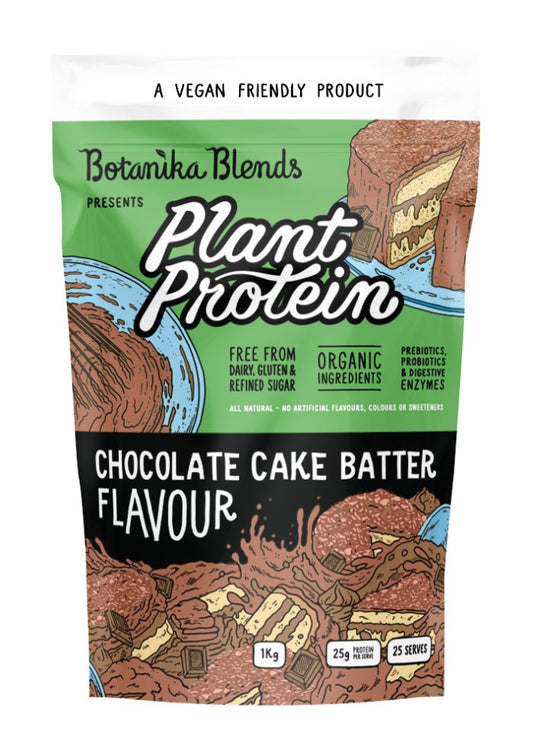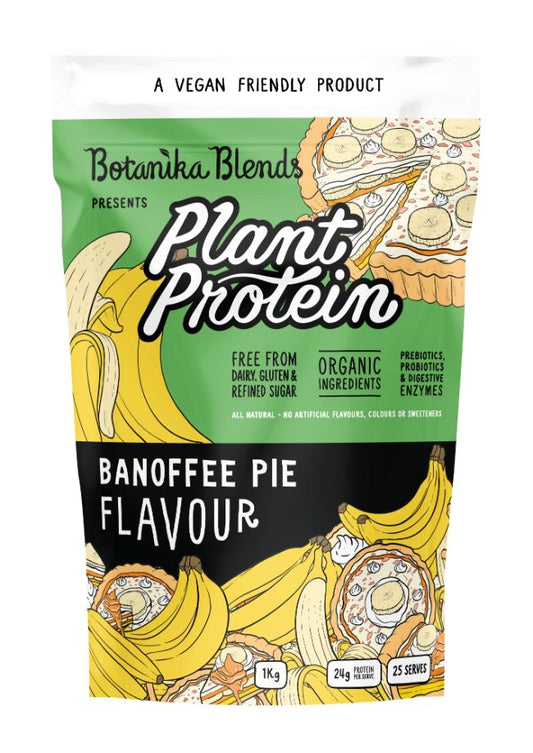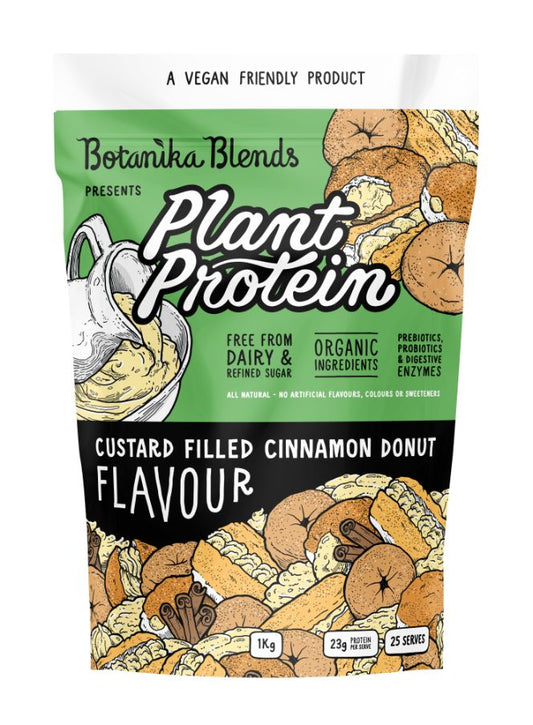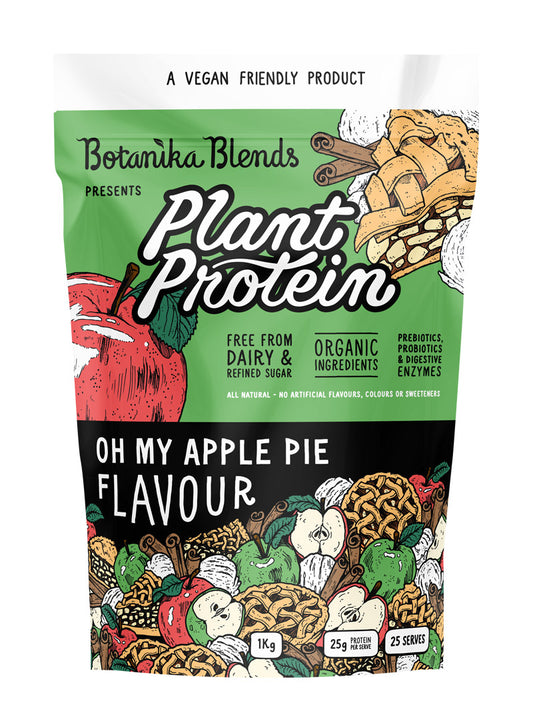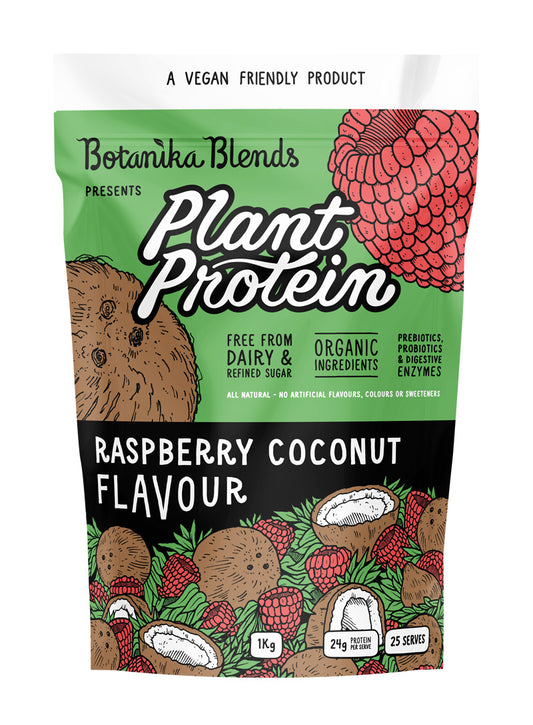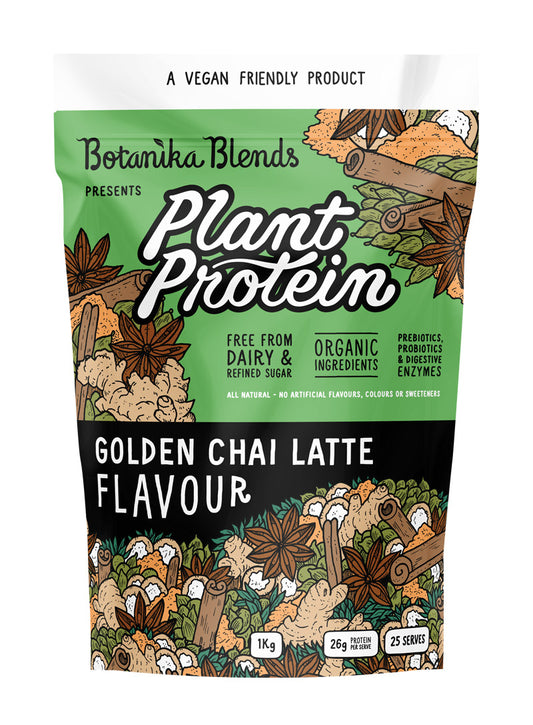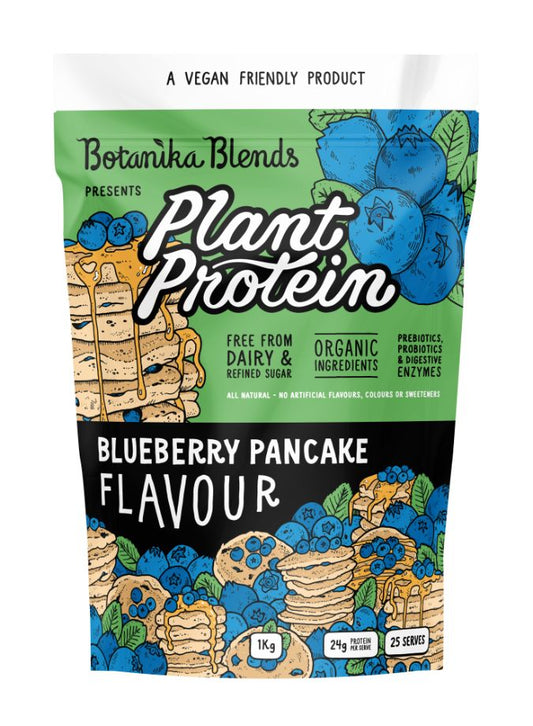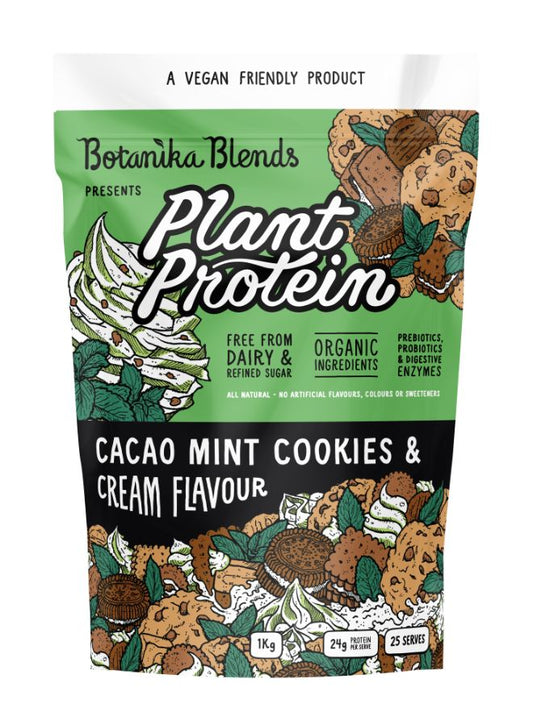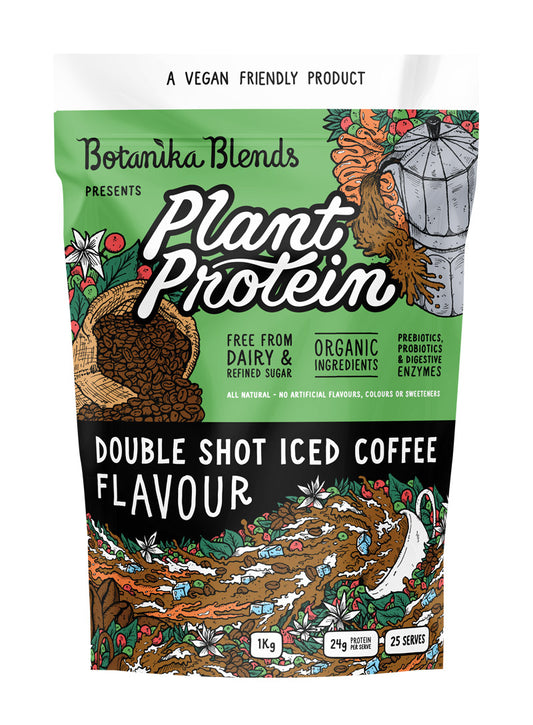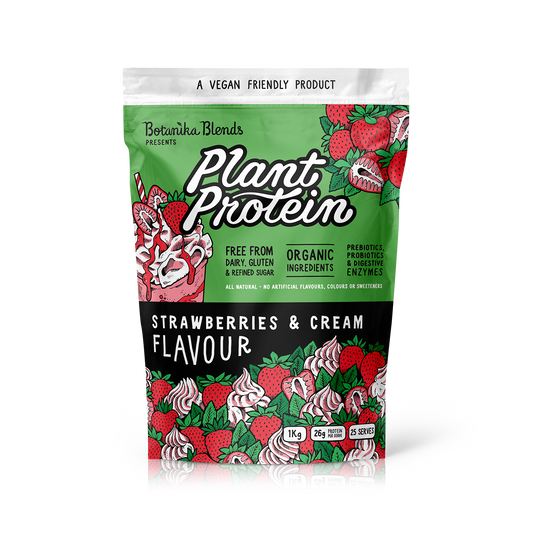-
Plant Protein Water Apple Blackcurrant
Vendor:Botanika BlendsRegular price $34.06Regular priceUnit price per -
Plant Protein Water Raspberry
Vendor:Botanika BlendsRegular price $34.06Regular priceUnit price per -
Plant Protein Vanilla Cake Batter
Vendor:Botanika BlendsRegular price From $24.97Regular priceUnit price per -
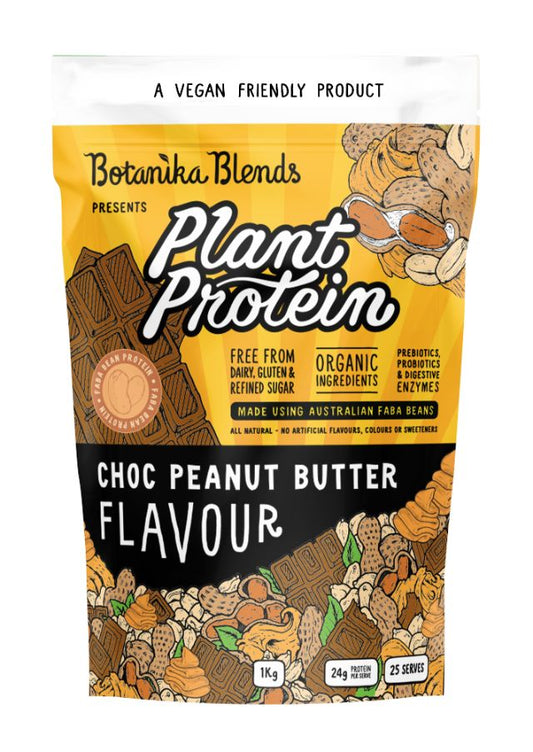 Sold out
Sold outPlant Protein Choc Peanut Butter
Vendor:Botanika BlendsRegular price From $28.38Regular priceUnit price per -
Plant Protein Cacao Hazelnut
Vendor:Botanika BlendsRegular price From $28.38Regular priceUnit price per -
Plant Protein Choc Cake Batter
Vendor:Botanika BlendsRegular price From $28.38Regular priceUnit price per -
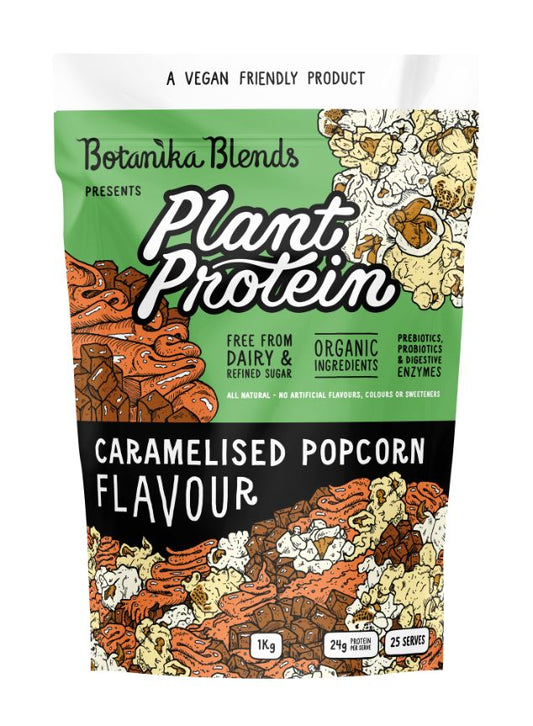 Sold out
Sold outPlant Protein Caramelised Popcorn
Vendor:Botanika BlendsRegular price From $28.38Regular priceUnit price per -
Plant Protein Banoffee Pie
Vendor:Botanika BlendsRegular price From $28.38Regular priceUnit price per -
Plant Protein Custard Filled Cinnamon Donut
Vendor:Botanika BlendsRegular price From $28.38Regular priceUnit price per -
Plant Protein Apple Pie
Vendor:Botanika BlendsRegular price From $28.38Regular priceUnit price per -
Plant Protein Raspberry Coconut
Vendor:Botanika BlendsRegular price From $28.38Regular priceUnit price per -
Plant Protein Golden Chai Lattè
Vendor:Botanika BlendsRegular price From $28.38Regular priceUnit price per -
Plant Protein Blueberry Pancake
Vendor:Botanika BlendsRegular price From $28.38Regular priceUnit price per -
Plant Protein Cacao Mint Cookies And Cream
Vendor:Botanika BlendsRegular price From $28.38Regular priceUnit price per -
Plant Protein Double Shot Iced Coffee
Vendor:Botanika BlendsRegular price From $28.38Regular priceUnit price per -
Plant Protein - Strawberries & Cream
Vendor:Botanika BlendsRegular price From $28.38Regular priceUnit price per -
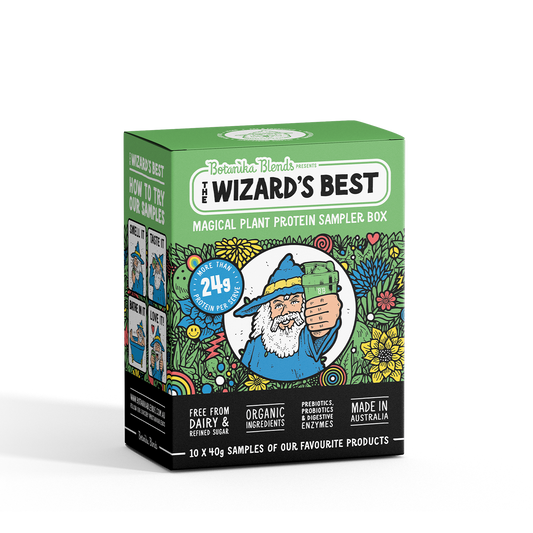 Sold out
Sold outWizard sampler box
Vendor:Integrity Food CoRegular price $32.47Regular priceUnit price per
FAQ Plant Protein
What is plant protein?
Plant protein is derived from various plant sources such as peas, rice, hemp, soy, and quinoa. It is a popular alternative to animal-based proteins for those following vegetarian, vegan, or plant-based diets.
How is plant protein different from animal protein?
Plant protein is sourced from plants and is often lower in fat and calories than animal protein. It is also free from cholesterol and suitable for those with lactose intolerance or dairy allergies.
What are the common sources of plant protein?
Common sources include peas, brown rice, hemp, soy, chia seeds, and quinoa. These sources can be used individually or blended to create a complete amino acid profile.
What is a complete protein, and can plant proteins be complete?
A complete protein contains all nine essential amino acids in adequate amounts. Some plant proteins, like soy and quinoa, are complete, while others may need to be combined to provide all essential amino acids.
What are the benefits of taking plant protein?
Plant protein supports muscle growth, aids in recovery, and can improve overall health. It is also rich in fiber, antioxidants, vitamins, and minerals, promoting better digestion and heart health.
How does plant protein support muscle growth?
Plant protein provides essential amino acids needed for muscle protein synthesis. While it may digest more slowly than whey protein, it is effective in supporting muscle recovery and growth when consumed in adequate amounts.
Can plant protein help with weight loss?
Yes, plant protein can aid in weight loss by promoting satiety, reducing overall calorie intake, and supporting muscle maintenance, which boosts metabolism.
When is the best time to take plant protein?
Plant protein can be taken any time of day—post-workout for muscle recovery, between meals to curb hunger, or as a meal replacement for weight management.
How much plant protein should I take daily?
The typical dosage is 20-30 grams per serving. The exact amount depends on your protein needs, which vary based on age, weight, activity level, and fitness goals.
Is plant protein safe for everyone?
Plant protein is generally safe for most people, including those with lactose intolerance or dairy allergies. However, individuals with specific allergies to certain plants should read ingredient labels carefully.
How does plant protein compare to whey protein?
Plant protein is suitable for those avoiding dairy, offering a more sustainable and allergen-friendly option. Whey protein, on the other hand, digests faster and may be more effective for rapid muscle recovery.
Is plant protein better than animal protein for health?
Plant protein is lower in fat and calories, free from cholesterol, and often rich in fiber and antioxidants, making it a heart-healthy option. Both types can be part of a balanced diet.
Is plant protein suitable for vegetarians and vegans?
Yes, plant protein is an excellent choice for vegetarians and vegans as it is entirely derived from plants.
Can people with gluten intolerance take plant protein?
Many plant proteins are gluten-free, but it’s important to check the label to ensure there are no gluten-containing ingredients or cross-contamination.
What should I look for when choosing a plant protein supplement?
Look for high-quality, non-GMO, and organic sources with minimal additives. Ensure the product contains a complete amino acid profile or a blend of different plant proteins.
Can I mix plant protein with other supplements or foods?
Yes, plant protein can be mixed with water, milk alternatives, smoothies, or incorporated into recipes like pancakes and baked goods.
Can plant protein replace meals?
Plant protein can be used as a meal replacement if combined with other nutrient-dense foods like fruits, vegetables, and healthy fats to ensure a balanced intake.
Why choose plant protein over other protein supplements?
Plant protein is ideal for those looking for a sustainable, allergen-friendly, and versatile protein source. It supports muscle growth, aids in recovery, and provides additional health benefits from its nutrient-rich plant sources.

